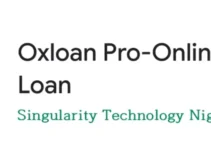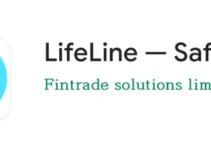Nigeria is home to so many loan apps. And part of this is because we are actively taking loans to fund personal and small business issues. Unfortunately, some of these loan apps are not legit. A lot of them are out to rip you with extremely high interest rates even, and they are not even licensed lenders. The typical fake loan app will either obtain money from you upfront or lend you 10,000 naira to pay back 20,000 naira, i.e., 100% interest rate.
This is a serious topic, so pay attention because it will help you know if a loan app is real or fake.
How to Know if a Loan App is Legit or Fake
Lender Has No Valid FCCPC License or Has Been Delisted
The FCCPC (Federal Competition and Consumer Protection Commission) registers digital money lenders, which we commonly refer to as loan apps. So, for any digital lender to be legit, they need to be licensed by this government ministry. It doesn’t mean that being approved by the FCCPC makes a loan app perfect. No, in fact, many of them still violate the rules guiding digital lending in Nigeria.
Sometimes, some loan apps have a CBN (Central Bank of Nigeria) license, particularly microfinance banks. An example is Xcrosscash by Newedge Finance Limited. But usually the FCCPC lists such apps as waivers licensed by CBN. However, if an app is fake, you won’t find it listed by the FCCPC or the CBN
The right thing for you to do is go here, and check if the loan app has FCCPC approval. You can also check if such an app has been delisted by the FCCPC. Delisted loan apps such as WeCredit are not legit.
It Doesn’t Use Any Credit Bureau to Check Your Credit Score/History
Before a loan app approves your loan, they review your credit history using a platform like the CRC Credit Bureau Limited. A fake loan app does not use this facility to check your credit score, so they just go ahead and disburse a loan without knowing if you are a low or high risk borrower.
The CRC Score is a 3-digit number from 300 to 850 that a lender uses to determine the level of your risk as a borrower. The lender can grade your risk as excellent, good, average or poor. So, if you have a higher credit score, it means you’re low risk, and the lender is likely to reduce your interest rate and lend you more money. If your credit score is low, the lender can do any of the following:
- Reject your loan application
- Increase your interest rate
- Reduce the amount of money you can borrow
- Shorten the loan tenure
However, if you’re dealing with a fake loan app, they don’t care about these things. All they want is for you to accept their money and then pay back with 100% interest after 7 days.
Has No CAC Registration
Most legit businesses in Nigeria are registered with the CAC (Corporate Affairs Commission). This also applies to loan apps. For example, if you search for Fairmoney Microfinance Bank Limited on the CAC, you’ll find them, including their RC number. You can do your CAC name search here.
However, a fake loan app won’t be registered under any business. Doing this will make them traceable, so they’d rather not register the business since their activities are not legal. Avoid any loan app with no CAC registration. Also, some loan apps are registered under its specific company name, so make sure to search the company name and not just the loan app.
Lender Has No App or Website
The reason we call them loan apps in the first place is because they have apps where we use to apply for loans. Some legit ones do not. At the time of making this post, an FCCPC approved Credit Wallet has no app but has a website. Nonetheless, if a loan app has no app on Google Play or Apple App store, it’s a red flag.
It’s not safe because you might be downloading malware on your phone. Some of them have apps that are not listed on Android or iOS app stores. Fake loan apps create them just to fulfill the name ‘loan app’.
You can’t also report such an app for policy violation since nobody can hold it accountable. Google Play Store, for example, has a policy against loan apps that access your contacts and gallery. A fake loan app is not included in this policy if it is not listed on Google Play Store.
This is not to say that some fake loan apps don’t manage to smuggle their apps onto Google Play Store and Apple App Store. Some do, and we have a lot of them on these app stores. However, you’ll typically notice that they have poor ratings and fake reviews meant to counter the effect of legit, honest reviews about their app.
As for websites, most loan apps have them. For some, their websites also serve as web apps, such that the website acts as their app in case you want to access their lending service via your browser. Not that fake loan apps can’t create a website but the investment might not be worth it for them. Many of them create one for the ‘packaging’ effect so that they can take your money much more easily.
Doesn’t Have a Verified Social Media Handle
A fake loan app won’t typically have a working social media handle. They wouldn’t want to go public since they are not legit. Also, their social media profiles will attract bad reviews from existing borrowers. So, check if a loan app has a verified or unverified account on Facebook, X (formerly Twitter) or Instagram. You can use the users’ comments to determine if taking a loan from a lender is worth it in the first place.
Lender Has a Reputation for Harassing Borrowers
A fake loan app can’t use legal facilities provided to loan apps in Nigeria to take back their money. As a result, they resort to harassing borrowers on WhatsApp,text messages, and phone calls. They will typically violate customer privacy such as accessing phone contact lists and gallery if you have installed their app. When they have access to your contacts, they phone or message your friends, family members, and colleagues, defaming your person.
If you come across a loan app with this characteristic that isn’t licensed by the FCCPC, it’s likely a fake loan app you should avoid.
Loan App Lies About Its Physical Address
A lot of loan apps lie about their physical addresses. We’ve looked up some of these loan apps, only to find out that they don’t exist in such an address. They lie about their address since they are not real and could be arrested and jailed if caught. So, yes, it would be unwise for a fake lender to have a legit address accessible to anyone, including the Nigerian authorities.
Lies About Its Interest Rates and Loan Tenure
A legit lender is open about its interest rate and loan tenure from onset. They don’t advertise false terms or lie about their interest rates on their website or app. A lot of FCCPC approved loan apps are guilty of this violation but fake lenders typically practice this the most. Sometimes, a fake lender promises interest rates just to lure you in. If it’s too good to be true, then it probably is. For example, they can offer you 50,000 naira to pay back 53,000 naira in 6 months. However, once you log into the app and apply for a 50,000 naira loan, the lender sends you 35,000 naira to pay back 70,000 naira in 7 days.
Now, they’ve made hidden charges and taken a lot of money upfront. If you message them about it, you’ll be told that the processing fees are responsible for the amount being different from what was advertised. This is pure scam. A legit loan app will never lie about its interest rates and loan tenure.
Lender Charges Unrealistic Fees in Advance
The only thing a real lender requires from you before disbursing a loan include your personal information (such as your name, address, employment information, phone number, email address, ID, selfie, and state of residence) and your bank information (such as your BVN, bank name, card number, card PIN, account name, and account number). They will never ask for upfront payment. With your information, the lender determines your creditworthiness to know the amount of money or interest rate you’re eligible for.
A fake loan app, on the other hand, will ask for advance payments. It could be processing fee, management fee, maintenance fee, or whatever fee they choose to call it—all of these to make sure they take as much money as possible from you.
Characteristics of a Real Loan App
- Licensed by the FCCPC
- Works with the CRC
- Honest about its interest rates
- It doesn’t ask for loan fees, processing fees, or make any hidden charges
- Has a physical and verifiable address
- The lender has a working website and its loan app is listed on Google Play or Apple App stores or both
- Does not have a reputation of harassing borrowers
- Does not give you 7 days to pay back your loan
- Registered with the CAC
- Has a good digital lending reputation overall
These are the primary things you should look at before you obtain a loan from any instant digital lender. Also, avoid those lenders who directly contact you with loan offers. Most of the time, these offers are misleading. The moment you take the loan, you will find out the real offer, which you won’t find friendly.
Also, if you borrow from a loan app with no legal presence in Nigeria, they’ll rely on defaming you to get their money back because they do not have the legally backed facility for that. For them, it’s “take my money by force and pay back twice the amount in 7 days”. No matter what, don’t get involved with a fake lender. And when you borrow money, it should be an amount you can afford to pay back.

![LCredit Loan App Review [Legit or Scam?] LCredit Loan App Review [Legit or Scam?]](https://instantmoneyapp.com/wp-content/uploads/2024/03/PicsArt_03-09-07.43.51-211x150.webp)
